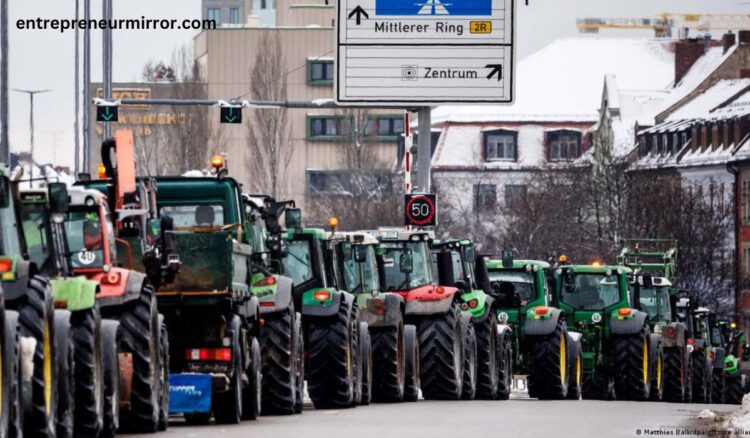Germany is currently experiencing significant travel disruptions due to a three-day national rail strike and ongoing protests by farmers. The strike, which started on Wednesday and will last until Friday, has led to the cancellation of about 80% of long-distance train services and varying impacts on regional lines. Deutsche Bahn, the main rail operator, has implemented an emergency timetable but many travelers are still facing difficulties.
The strike, organized by the train drivers’ union GDL, is part of ongoing negotiations for better pay and reduced working hours for shift workers. This is the third major strike since talks began last November.
Meanwhile, German farmers are protesting against government plans to cut fuel subsidies. Since Monday, they have been blocking roads and highways with tractors, and even rallied at Berlin’s Brandenburg Gate. The government intends to save around €920 million with these cuts, but the protests show no sign of stopping.
These events are causing considerable inconvenience for millions of commuters and travelers in Germany. The public is advised to postpone or cancel non-essential travel during this period. A major rally, involving both farmers and the freight industry, is planned for January 15 in Berlin.
Also Read:































































